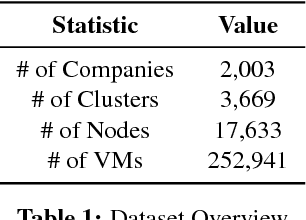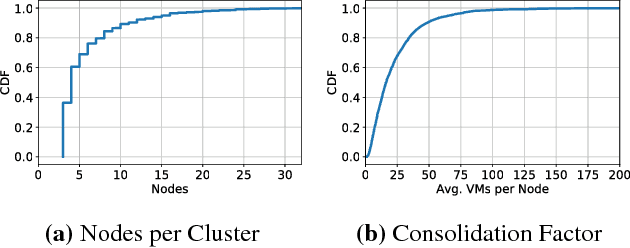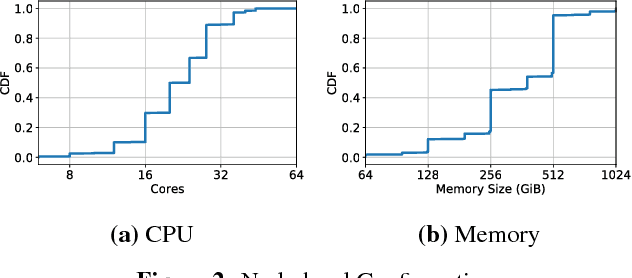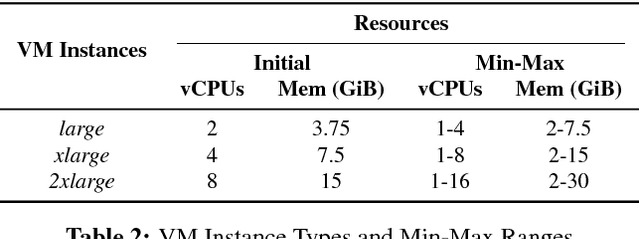Chern Cheah
ADARES: Adaptive Resource Management for Virtual Machines
Dec 06, 2018



Abstract:Virtual execution environments allow for consolidation of multiple applications onto the same physical server, thereby enabling more efficient use of server resources. However, users often statically configure the resources of virtual machines through guesswork, resulting in either insufficient resource allocations that hinder VM performance, or excessive allocations that waste precious data center resources. In this paper, we first characterize real-world resource allocation and utilization of VMs through the analysis of an extensive dataset, consisting of more than 250k VMs from over 3.6k private enterprise clusters. Our large-scale analysis confirms that VMs are often misconfigured, either overprovisioned or underprovisioned, and that this problem is pervasive across a wide range of private clusters. We then propose ADARES, an adaptive system that dynamically adjusts VM resources using machine learning techniques. In particular, ADARES leverages the contextual bandits framework to effectively manage the adaptations. Our system exploits easily collectible data, at the cluster, node, and VM levels, to make more sensible allocation decisions, and uses transfer learning to safely explore the configurations space and speed up training. Our empirical evaluation shows that ADARES can significantly improve system utilization without sacrificing performance. For instance, when compared to threshold and prediction-based baselines, it achieves more predictable VM-level performance and also reduces the amount of virtual CPUs and memory provisioned by up to 35% and 60% respectively for synthetic workloads on real clusters.
 Add to Chrome
Add to Chrome Add to Firefox
Add to Firefox Add to Edge
Add to Edge